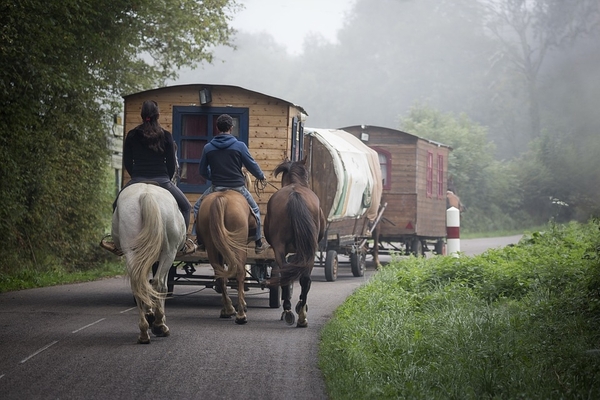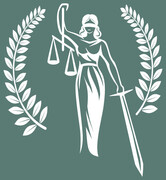
Who are our UK travellers, and why do they have such a bad reputation?
Tuesday 1st November 2022
EM
Travelling communities in the UK are constantly under scrutiny and are often evicted in large operations carried out by the police. There have been many over recent years, all publicised and all of which lay a foundation for the British public to judge and scrutinize them. The most famous one was in 2011, when 400 travellers were evicted from Dale Farm. This news broadcast evacuation showed this community as volatile and unreasonable, but is this really the case, or do we simply go along with what everyone believes and the reputation that may have been created by just a few families? All communities have a proportion of people who make bad decisions, but we should not tar all of them with the same brush, so why do we have issues with travellers?
Who are the travellers, and why do they have such a bad reputation
Traditionally known as Pavees, the ethically nomadic Irish travellers live in a close-knit environment. They are usually better known for arriving in caravans in large numbers to take over an unauthorised field or plot of land. This is because of their nomadic roots and the informal nature in which this historic community resides. Travellers have been known for many years and have always been the subject of ridicule, discrimination, and hatred. Thankfully, England has imposed laws over the previous years to protect these families, with most authorities providing a new settlement place for them if they are evicted from an unauthorised encampment. Unfortunately, even though these laws are in place, we have still seen a number of evictions, leaving many travellers with nowhere to go. There has always been a preconception that travellers always break the law. If you think about it, this is the position the UK has put them into, and rather than the government spending thousands to evict people from their homes or from traveller sites, the money could go to building a place where they can settle and live life comfortably without fear of being evicted.
Telegraph journalist Owen Jones wrote: "What we saw take place at Dale Farm was the culmination of years of intolerance. Irish travellers still remain an object of widespread prejudice in British society, along with Romany gypsies".
So, what happened at Dale Farm?
When the travellers were evicted from Dale Farm, the news televised a vastly different story than what actually happened. They portrayed the families that lived there as being unruly and disrespectful by showing the community's understandable reaction to the eviction notice. They never seemed to delve into why the community was so angry. So, let's look at a brief history of the site.
Dale Farm was first populated by Romany gypsies in the 1970’s. They finally settled at the site after Basildon Council approved planning permission for the families to live beside a scrapyard owned by local businessman Roy Bocking. The community lived there under these conditions until 1996, when Roy retired and decided to sell the land to an Irish travelling family for approximately £122,000.
As you would expect, now that the land was owned, the community grew and more and more families moved onto the land, eventually making the total number of people residing there to 400 or more. In 2001, as the numbers increased, Basildon Council started to receive notifications of planning breaches. No action was taken by them at this time. The original plan in the 1970’s was for 40 residential dwellings, but by the time the eviction happened, this figure had doubled. It does not appear that anyone approached the community to resolve the matter and give them an opportunity to resolve it. In 2005, the council took the matter up with Downing Street.
The travellers were granted a two-year reprieve after their representative visited No 10. A long and drawn-out legal battle ensued, which, as we all know, led to the families' being evicted. Ten yearson, the families are still trying to sell the land, with little success. Contrary to what was publicised, many residents in nearby towns liked the community, with many supporting them and saying that a huge injustice had taken place. However, this is only when you delve into the historical archives to find out more about the story. Many people all over the UK remember the travellers of this site as troublemakers and violent people, and as with all news, when you just read the headlines, the public forms an opinion that is still causing these families unrest to this day.
Things we should know about the travelling community before making assumptions.
1.There are an estimated 300,000 Irish travellers and gypsies in the UK. This number is vastly underestimated due to their lack of desire to take part in the census.
2.Travellers are of Irish origin, and Romany Gypsies hail from the north of India. Both groups are nomadic.
3.Gypsies, Roma, and Travellers (GRT)researchers confirm this is an ethnic group rather than a lifestyle. With all groups legally being recognised and protected from 2002 as ethnic minorities under the Equalities Act 2010. This is either through sharing a particular language or dialect, or simply their cultural practices and way of life.
4.Traveller child education can be problematic, as being on the road all the time means it is difficult to attend schools on a regular basis. This does not deter them from having excellent heads for business.
5.The daughters of this community are often taken out of school to avoid them mixing with other boys outside of their culture and beliefs. Both types of travellers have strong views on who their daughters and/or sons should marry.
6.Roman Catholicism is the belief of the majority of travellers, with all being baptised shortly after birth. They receive their first communion at approximately 8 years old, finally being confirmed when they reach their teenage years.
7.Travellers believe strongly in the afterlife.
8.Their main occupations are breeding dogs or raising horses. They recycle metal and scrap. Choosing self-employment rather than a wage, although this does vary from family to family.
9.Young suitors follow a tradition of"grabbing" where they grab the girl of their choosing when they want to kiss them. It is forbidden for any young girl to approach a suitor, and therefore, it is up to the boy to take the girl away from her friends to commence their courtship.
10.Neither group believes in sex before marriage, and although many of the girls will dress provocatively for events such as communions, weddings, or proms, their morals do not reflect this. All traveller women are completely monogamous to their husbands as breaking this tradition could led to them being disowned and branded dirty.
11.If a daughter or son is unmarried, they are not permitted to socialise unsupervised to ensure the protection of the girls.
12.Girls will marry at the age of around 17, with their suitors being approximately 19. Marriage to second cousins is common, but usually they do not marry non-travellers. The man is always in charge of the relationship, or "the man of the house," as we would say.
13.The weddings are luxurious, exaggerated and flamboyant, as we know from shows like My Big Fat Gypsy Wedding. This program is not staged as with most reality shows but does provide a unique insight into the values they put on marriage and family.
14.One third of the travelling community passes away before they are 59. This is their mistrust of traditional medicine and the bias or judgement they receive outside of their community.
15.More traveller women miscarry or have stillborn children compared to the rest of the UK population as they do not wish to be examined during pregnancy. This is due to their strong beliefs about being touched by anyone other than their husband.
16.Calling the police during a domestic violence situation could lead to the exclusion of the community, and therefore most instances are unreported.
17."Gypsy Law": all travellers are private people, and not much is known about the law. It is believed their own internal law protects travellers' rights, interests, traditions, and ethnic distinctiveness.
We all live by various sets of rules and beliefs that our culture defines. We all have responsibilities and laws that our own community requires us to abide by. Many of us do not understand other cultures' beliefs, and many of us conclude that they are wrong or unjust. However, every culture has a right to live by their own values and religion, and all do not have the right to judge others. Over the years, we have continually judged the lifestyles of travellers, but we have accepted others that could even be construed as barbaric.
We know everyone is different. We don’t judge and, more importantly, we do not have preconceived notions of what you believe. We understand that your family values are just that, they are valuable to you and your community. In the Lie Detection Industry travellers reach out to us for many reasons but mainly it is their strict beliefs on disrespect, theft and adultery within the community. This shows strong family tradition and discipline. It shows this community has rules to abide by and if they don't, there are consequences. This can result in being disowned by your community and not having contact with them moving forward. These rules have kept this community alive for centuries, and it is concerning that in all that time they are still being treated unfairly. It is true to say that everyone should be treated equally, and at Lie Detector Services LTD we will continue to strive to achieve just that.
We provide our services with a £50.00 per person, non-refundable booking fee. We do allow payment on the day, but at our Evesham office only. All other offices require payment 24 hours in advance. If you need our help, then please contact our dedicated Customer Support Team on 0800 774 7268 or visit us online.




